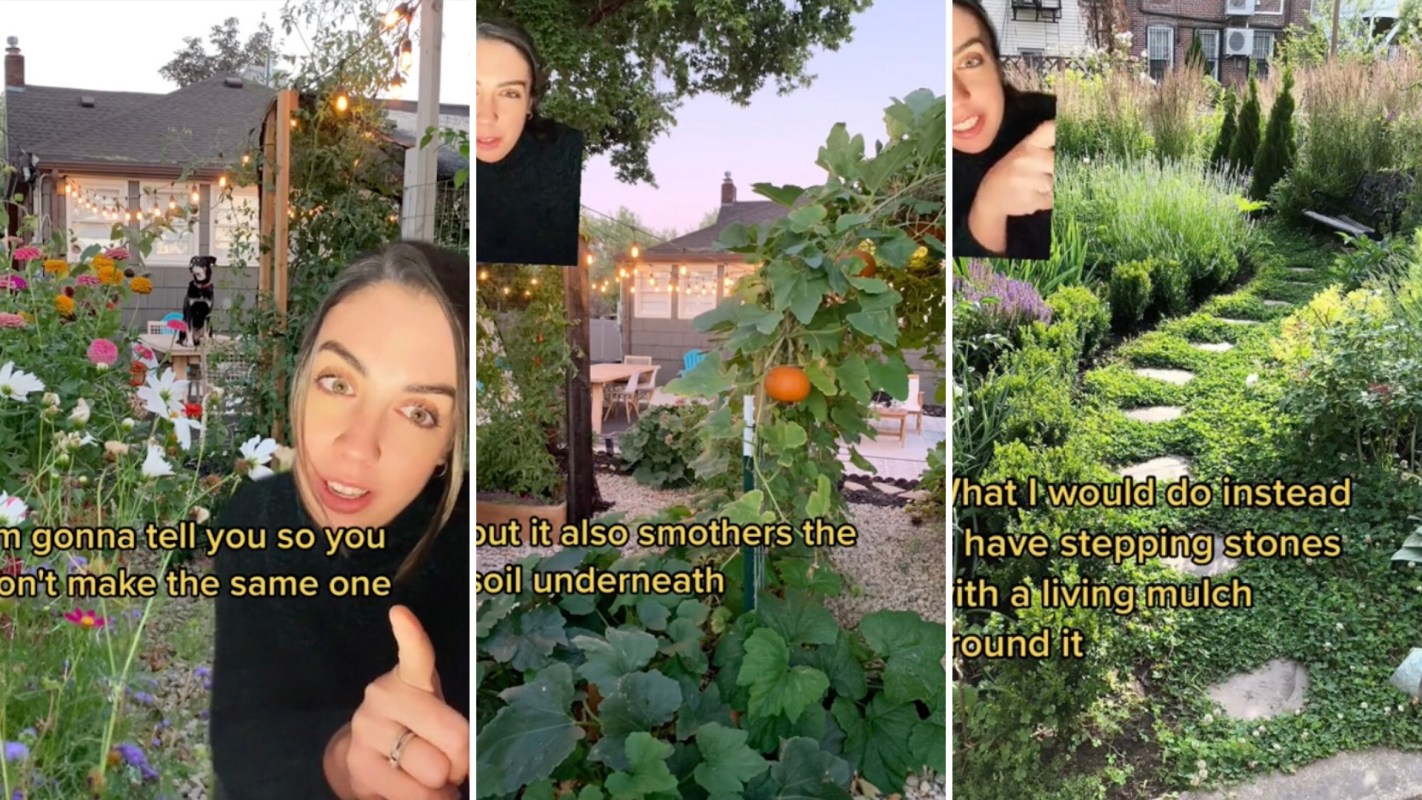A healthy, self-sustaining garden needs more than just separate rows of unrelated veggies. The different elements need to support each other and become harmonious parts of a whole. One sustainable landscape designer shared her biggest regret from planning her garden: choosing gravel paths over live plants.
The scoop
Daryl (@yardfarmer.co) opens the video by introducing herself and saying she's a professional sustainable landscape designer. "But I wasn't one when I designed my own backyard garden in 2018," she adds.
@yardfarmer.co My one big garden design mistake I will fix when I have the energy someday #sustainablelandscapedesign #sustainablebackyard #sustainablegarden #sustainablegardendesign #gardendesign #gardenfails ♬ La Vie En Rose - Emily Watts
Daryl's garden contains many beautiful and healthy plants, but her choice of path material left something to be desired: She chose gravel. "The weeds are so stupid," she says, "but it also smothers the soil underneath, so there's nothing good or beneficial happening down there." With all that in mind, she called gravel paths "my one big garden design mistake I will fix when I have the energy someday."
Her ideal alternative? Stepping stones surrounded by what she calls a "living mulch."
"This one is clover," she says, showing a photo of a charming fairy-tale path winding through a garden. "Which is interesting because it's nitrogen fixing. That means it's going to be pumping nutrients into the soil around my raised vegetable beds."
How it's helping
The more nutrients in the soil, the easier it is for plants to grow there. This is especially important in food gardens, where gardeners are constantly removing the vegetables grown from those nutrients.
The soil has to be replenished, or the plants won't be able to produce anymore. With the right plants to add nutrients, though, you can keep enjoying healthy harvests that taste delicious and save you money — not to mention helping the planet by reducing your need for store-bought veggies that are shipped long distances.
According to Daryl, clover or other living mulch plants have several other benefits, including suppressing weeds.
She went on to say: "Beyond that, it is so important to have living roots in your soil at any given time, because living plant roots, not dead ones, are what attract the bacteria and the fungi that are the initial tiers on the food chain that is healthy soil. In an annual food garden, that can be especially difficult because those plants will die at the end of the season; then you're starting from scratch in the spring in terms of your soil health. This eliminates that problem without requiring you to plan ahead with a cover crop."
What everyone's saying
Daryl's video became incredibly popular, attracting lots of supportive comments from users eager to try the tip. "I want a moss or clover lawn, not grass," said one user.
"Does clover attract bees?" asked another commenter. "I'm looking for something I can plant like clover, but I am allergic to bees and so are my kids."
"Yes — look into low-grow groundcover that doesn't flower like fescues or sedges!" Daryl recommended.
Join our free newsletter for easy tips to save more, waste less, and help yourself while helping the planet.









